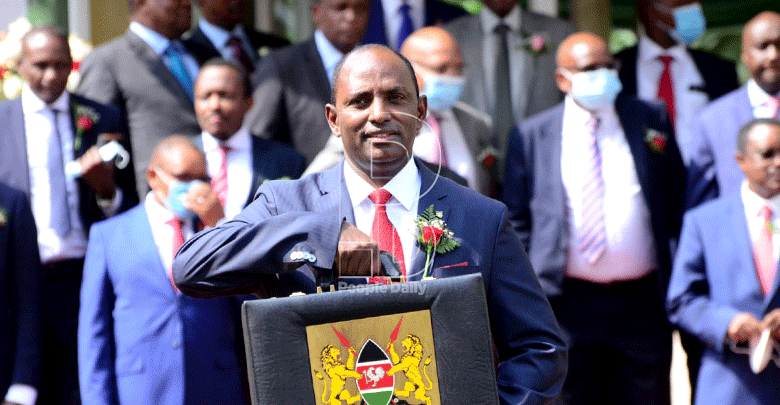KRA’s tax plans could draw Uganda, Tanzania’s outrage
By Lewis Njoka, July 2, 2021Lewis Njoka @LewisNjoka
Parliament has moved to cushion local p by increasing taxes levied on imported agricultural goods.
The Finance Bill 2021 signed into law by President Uhuru Kenyatta on Tuesday, imposes a 20 per cent excise tax on various forms of pasta including spaghetti, macaroni, noodles, and others.
Imported eggs will attract a tariff of 25 per cent, same as imported onions beginning July 1.
Similarly, imported potatoes, potato chips and potato crisps will attract an excise duty of 25 per cent.
Additionally, imported furniture of any kind including that used in offices, kitchen bedroom and other areas will also attract a 25 per cent excise duty, a move seen as protecting local producers.
Analysts fear the move could rekindle disagreements with neighbouring countries considering that Kenya imports a lot of eggs and chicken products from Uganda and onions from Tanzania, among other goods.
This comes at a time when countries on the continent are encouraging intra-African trade through the African Continental Free Trade Area (AfCFTA).
“It’s a balancing act in the sense that there is AfCFTA, the East African Community and so on but some of the political class are eyeing 2022 so there are those populist kind of proposals they are coming up with,” said Churchill Ogutu, the head of research at Genghis Capital.
However, not everyone is as lucky as the farmers. Producers using imported sugar confectionary will have to pay an excise duty at the rate of Sh35 per kilo.
Products containing nicotine intended for inhalation without combustion, excluding approved medicinal products, and manufactured tobacco substitutes will attract an excise duty at the rate of Sh1200 per kilo.
Earlier in the budget making process, Treasury has proposed to increase taxes levied on bread but parliament shot down the proposal.
Internet consumers will have to pay more to remain connected the excise duty levied on internet and telephone data services, was increased from 15 to 20 per cent.
Some relief
Local residents got some relief after it was decided that digital service tax, charged at 1.5 per cent of the gross transaction value, will only be levied on foreign companies operating in the Kenyan digital space.
Naomi Majale, a project officer with the National Taxpayers Association, termed the move to increase taxes on these products necessary, saying it would assist in the country’s fiscal consolidation exercise and was in line with the conditions imposed on Kenya by International Monetary Fund (IMF).
“There is a need for domestic resource mobilisation. Even the IMF has called for increased taxes, it’s one of the propositions they gave,” she said.
She, however, noted that there was need for more transparency in the budget making process, citing the Supplementary budget II of financial year 2020/2021 as one budget making process that raises questions.
The supplementary was raised barely two weeks to the end of the financial year.
Despite the seemingly protectionist approach taken in the Finance Act 2021 Kenyans still face tough times ahead.
Latest data from Kenya National Bureau of Statistics shows that inflation has risen to the highest level in 16 months to hit 6.32 per cent in June from 5.87 per cent recorded in May.
“The increase was mainly driven by rise in prices for commodities under: food and non-alcoholic beverages; housing, water, electricity, gas and other fuels; and transport between June 2020 and June 2021,” said Macdonald Obudho, the KNBS Director General, in a statement.
